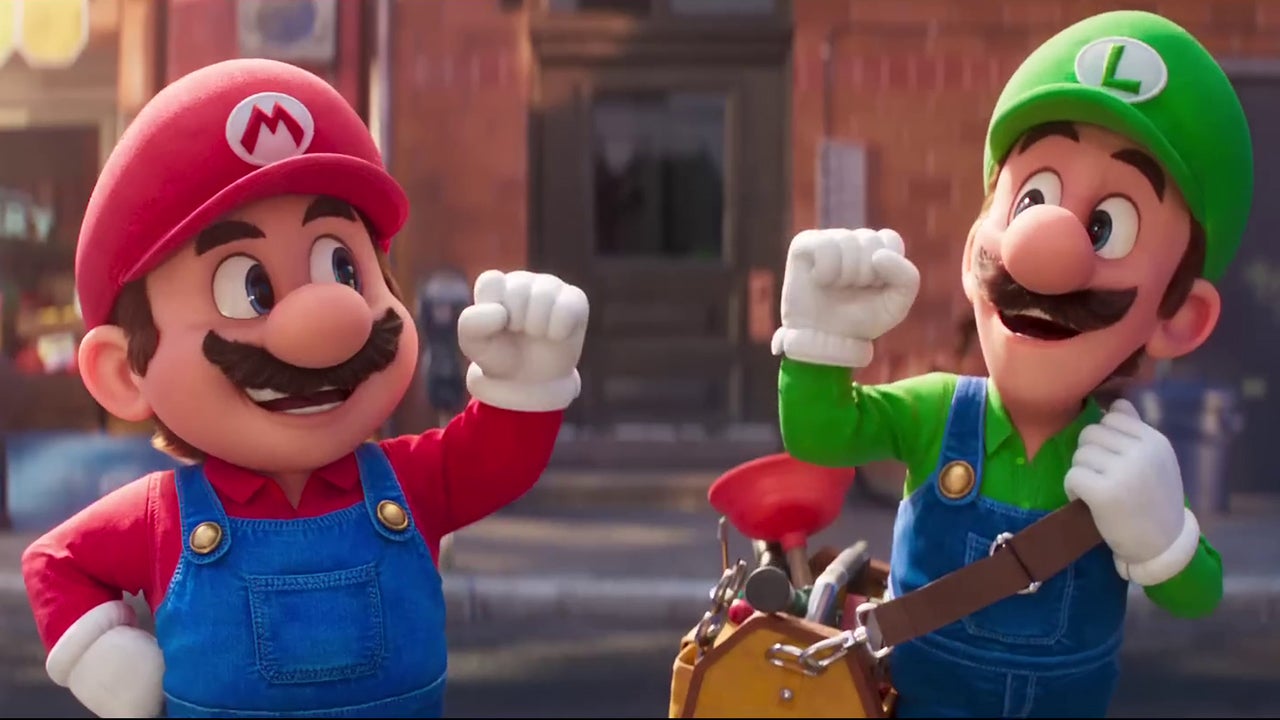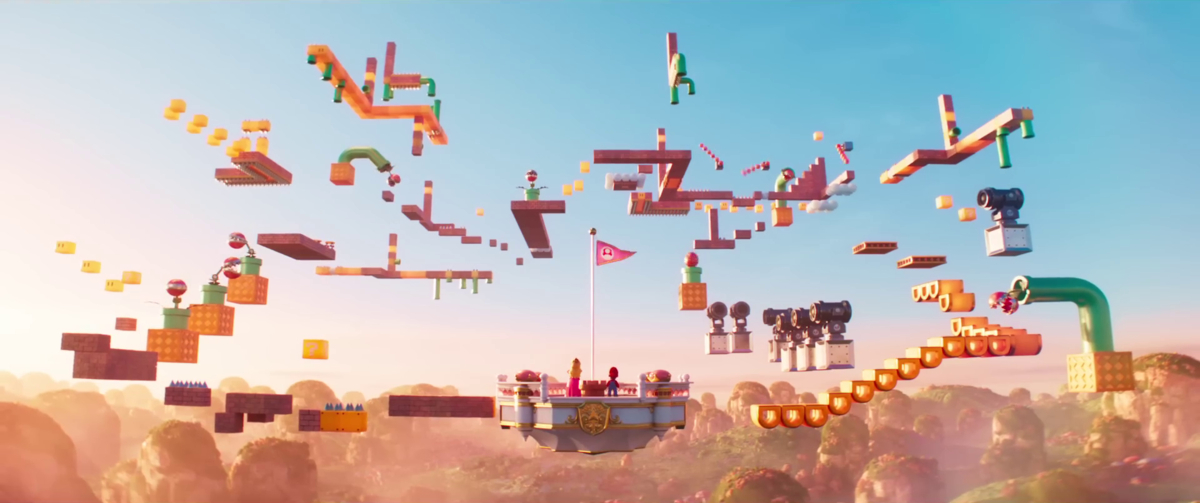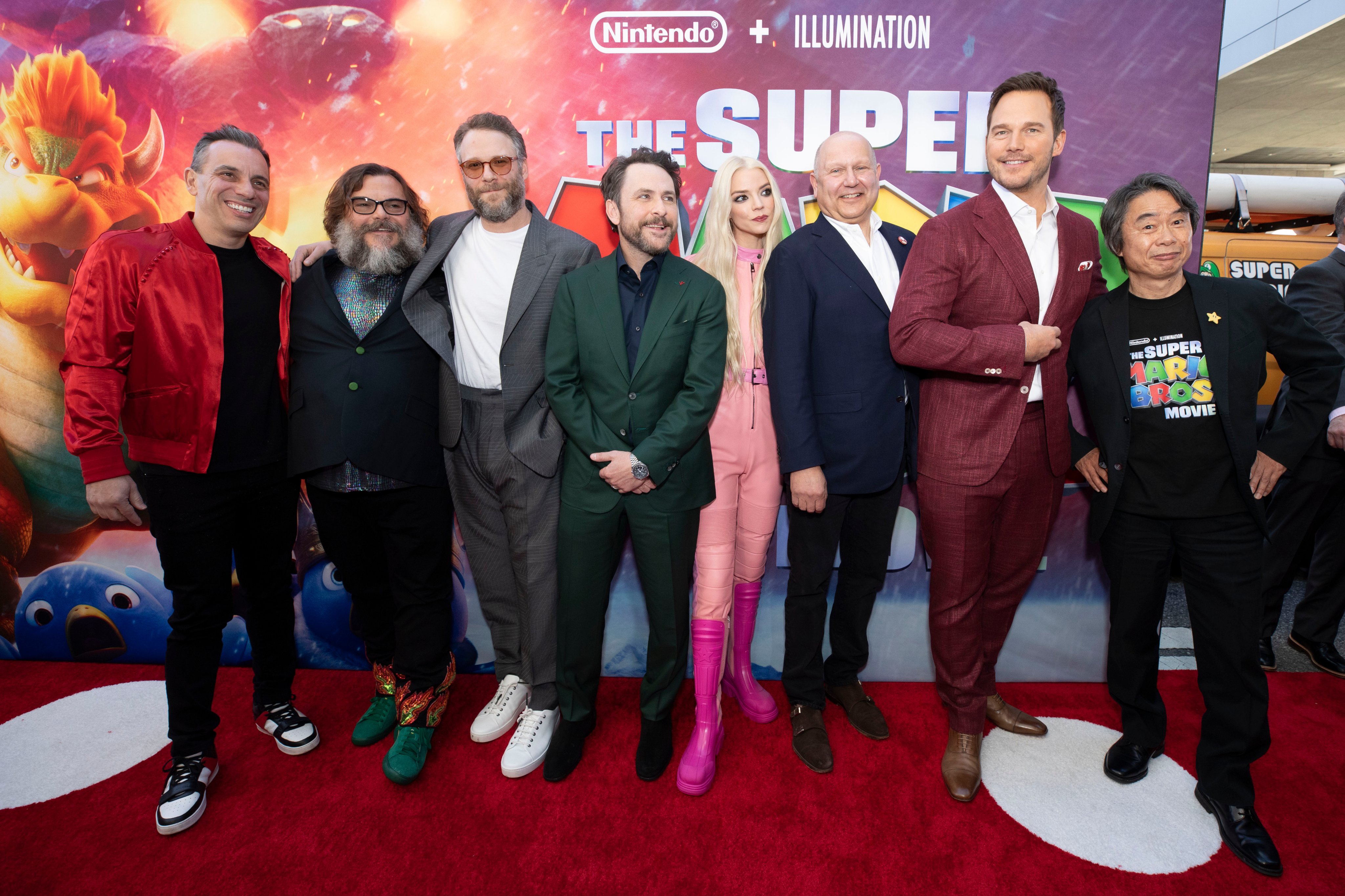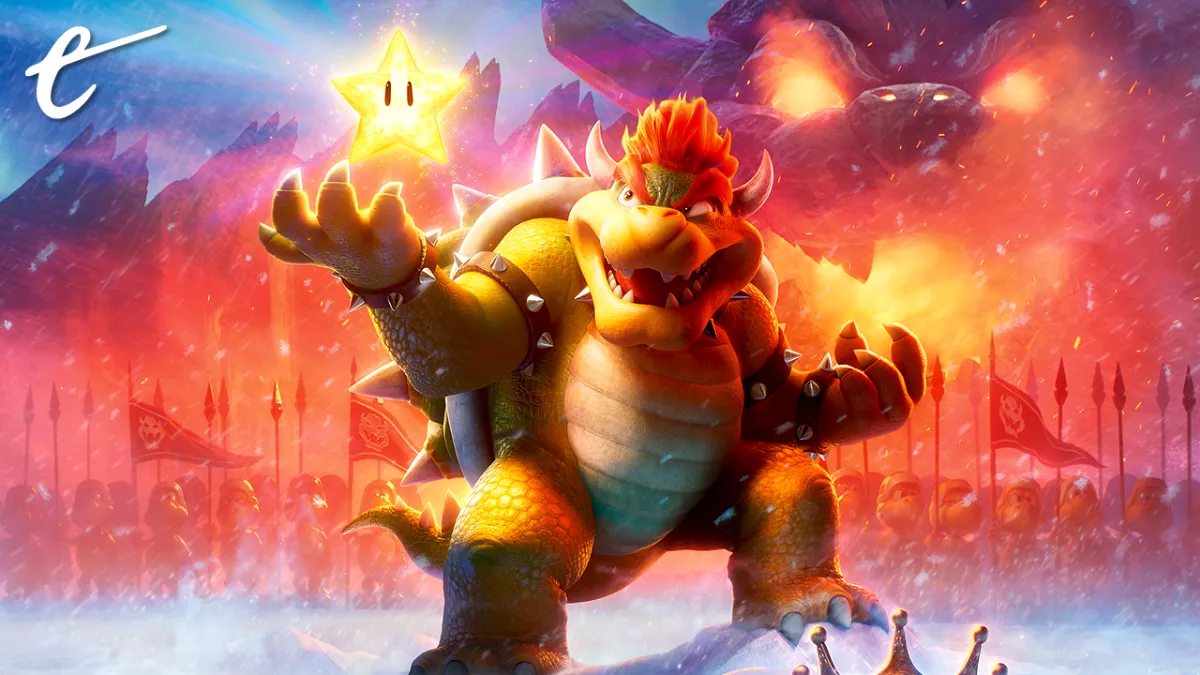We are in a new age of earnestness in cinema. I won’t dive too deep into this subject as we’ve covered it in the past, but needless to say, the tongue-in-cheek, self-referential, often parodic nature of cinema over the last two decades seems to be coming to an end as films veer back towards taking themselves seriously. It is with this in mind that I proclaim that The Super Mario Bros Movie is seeing so much success not because it simply brings Mario and the rest of the crew to the big screen, but because it does it in such an earnest manner that’s refreshingly appealing for both an animated feature and a video game adaptation.
And let’s be clear — The Super Mario Bros Movie is not just a success. It is a box office bonanza. A record-breaking juggernaut that has pleased critics, old-timers like myself, and young fans like my eight-year-old son. It is a certified hit beyond even Nintendo and animation studio Illumination’s wildest predictions. It is not only the highest-grossing film of the year but one that people are clearly seeing multiple times as it spends a third week at number one at the box office, pulling in around $871.8M by this point while showing no signs of slowing down. But why? A good film could make money back, but it takes a special film to dominate like this.

I think it’s because The Super Mario Bros Movie takes itself seriously. Now, of course, it’s not a serious movie. The film is crammed full of gags, jokes, and slapstick comedy that had my son rolling in his seat. (Never underestimate the hilarity of a monkey punching a plumber in the face.) But that doesn’t mean it doesn’t take Mario seriously. This isn’t a film about poking fun at the ridiculousness of a mustachioed plumber being the hero of a kingdom full of evil turtles and talking toadstools, but rather a film that sees that ridiculousness and loves it, playing nearly the entire thing straight instead of mocking it.
We can take one scene from the film as an example of this: Mario’s test to show he’s worthy to go on the adventure with Princess Peach. Mario jumps around a training course that’s clearly a level from the games, a moment rife for nods to the camera, gags about game overs, and obvious nostalgia. Instead, though hilarious, the scene plays out as a loving homage to everyone’s experience replaying the same Mario level over and over again. (F*** you, Champion’s Road.) That reference isn’t spelled out or blatantly remarked upon for a joke, but simply allowed to sit with each and every viewer who has walked Mario directly onto a collapsing platform and fallen to their doom only to start over again for “one more try.”

Unlike nearly every major animated film since Shrek stormed box offices decades ago (including Illumination’s own content), Mario comes out with its tongue firmly removed from its cheek. There is some theoretical Shrek-like version of this film out there that deconstructs Mario and video games instead of celebrating them like this does. A movie where when Mario “sidescrolls” through a Brooklyn neighborhood, it’s played as a parody and not fun. A film where Princess Peach is captured and the film makes groan-worthy winks at the camera about the trope. A film where Bowser’s love for Peach isn’t played straight and probably isn’t played at all, with the fire-breathing boss instead a punching bag for cliche jokes about boss battle villains. A film where Mario’s first taste of a mushroom is turned into a hallucinogenic trip because you need jokes for the adults too.
It’s easy to come up with a million different ways The Super Mario Bros Movie could have turned into a cynical takedown of video game tropes and self-referential humor. And that film wouldn’t be bad, per se, but it wouldn’t have captured audiences in any way like this film we got did. And that’s not to insult Shrek, which is still a masterpiece in its own right, but to instead say that The Super Mario Bros Movie is its own thing coming out at its own time. It’s not just that the film worked as a Mario movie, perfectly encapsulating what one would have thought was an impossible feeling that only Mario games give you, but that it also played in a time when earnestness feels very much needed.

Image via Illumination
It is pretty obvious whom we have to thank for this. Obviously, Illumination did a great job, but Shigeru Miyamoto’s involvement with this film from day one is what delivered this movie. Miyamoto, a man whose face might sit next to the word “earnest” in the dictionary, guided this project closely to the extent that almost every article cited him not just as a producer but as a very involved one. It could not be more evident that the spirit of the man who created this franchise and helped guide it into the happy behemoth it is today is pouring through every frame of this film. The movie exudes a love of Mario and doesn’t care that Mario isn’t “cool” but just cares that you have fun watching it — just like the games.
Look, is The Super Mario Bros Movie (an earnest title in and of itself) full of rote cliches about family, belief in yourself, and the power of teamwork? Of course, but it wears all of that on its blue-shirted sleeve. This film is reveling in its joy, with every cleverly revamped musical cue or deep-cut Easter egg. Much like every Mario game, the film is just about having fun, hopefully with a few friends or loved ones. Let’s just hope that, when the inevitable sequel hits, it’s as earnest as this one.






Published: Apr 24, 2023 02:13 pm